The APS confers a range of awards and prizes each year to honour outstanding achievements in psychology. The recipients of the 2020 APS awards are profiled below.
President’s Award for Distinguished Contribution to Psychology in Australia
 Professor David Badcock FAPS
Professor David Badcock FAPS
David is deeply committed to supporting psychology. He has served the APS as Secretary of the Division of Scientific Affairs (1990-1993), and member of the Division of Psychological Research and Training (DPRET) most years from 1989-2017. He has served on committees across broad issues of relevance to the Society including the Education and Training Working Party developing course structures/standards for national registration, the Presidential Initiative, the Future of Psychological Science (Chair: Research Section), Membership, and organising committees for our annual conference and the International Congress of Psychology. His teaching, focusing on perception and sensory neuropsychology, extends from a co-authored Year 12 textbook to the vision chapter in the Handbook of Virtual Environments. His 160+ publications have significantly advanced understanding of visual performance and applied that knowledge to understand atypical perception. David has supervised 109 research students and his research has been recognised by the APS (Honours Prize, Early Career Award, Fellows Lecture). He has held a Rhodes scholarship, an ARC Professorial Fellowship, and Fellowships from the APS, Academy of Social Sciences in Australia and Association for Psychological Science.
He is Chair (previously Deputy Chair) of the Australian Academy of Science, National Committee for Brain and Mind which formed the Australian Brain Alliance and subsequently the International Brain Initiative and the Early/Mid- Career Brain Researchers’ network. He has coordinated the Australasian Society for Experimental Psychology since 1996 (President: 2008, 2019-2021) and is President of the Psychology Foundation of Australia, lobbying for excellence in education, research and training, and supporting young psychologists to promote Psychology to government.
 Mr Neil McLean MAPS
Mr Neil McLean MAPS
Neil is a clinical psychologist and lecturer in the School of Psychological Science at University of Western Australia (UWA). He is Chair of the UWA Human Research Ethics Committee, Acting Chair of the SA/NT/WA Regional Board of the PsyBA, and Chair of the West Australian Institute of Sport Board of Directors. He has at various stages been the Course Director of Clinical Psychology training, and the Academic Conduct Advisor and the Graduate Research Coordinator for the School of Psychological Science. He has supervised 13 PhD students to completion and countless DPsych, MPsych and Honours students. Neil was in one of the first cohorts of clinical students to be trained in cognitive therapy in Australia and this provided the platform for his subsequent teaching, research and consultancies. In conjunction with Ansett Airlines he developed a program for fearful flyers, which grew from its starting point in Perth to being offered nationally. Thousands of apprehensive travellers completed this program, and a video self-help offshoot has had over 200,000 hits on YouTube.
Neil has a longstanding interest in human performance and in elite sport performance in particular, and has worked with a range of individual athletes and AFL, NBL, Rugby Union, Cricket, America’s Cup Yachting and Hockey teams at national and international levels. This work involved application of psychological science to human performance across areas as diverse as decision making, skill acquisition, concentration, emotional arousal, communication and resilience. He was a member of the Australian team at five Olympic Games working mostly with the successful men’s hockey team.
Distinguished Contribution to Psychological Science Award
 Professor Sharon Naismith MAPS
Professor Sharon Naismith MAPS
Sharon is a clinical neuropsychologist, NHMRC Dementia Leadership Fellow and holds the Leonard P Ullman Chair in Psychology at the University of Sydney. During Sharon’s 13 years of postdoctoral research, her contribution to science has predominantly been in the areas of mental health, sleep and cognitive decline/dementia. Her work is impactful and has been cited over 11,000 times across 26 disciplines from 75 countries (h-index=59) and it has received high-profile media attention, appearing 76 times on television, radio, and print media. The quality of her work has been recognised by a Tall Poppy Award, the Society of Mental Health Research Oration and the award of three consecutive NHMRC fellowships.
Sharon’s research currently attracts around $28M of grant funding (career total $49M). She leads as chief investigator an NHMRC Centre of Research Excellence to “Optimise Sleep in Brain Ageing and Neurodegeneration” ($2.5M) and two NHMRC clinical trials for dementia risk reduction ($2.8M). Sharon holds a number of leadership positions including Chair of the Sydney Dementia Network, Vice Chair of the Alzheimer’s Association International Sleep and Circadian Rhythms Professional Interest Area and she Leads the Memory Clinics Initiative of the Australian Dementia Network (ADNeT)(more than 55 clinics nationwide).
Early Career Research Award
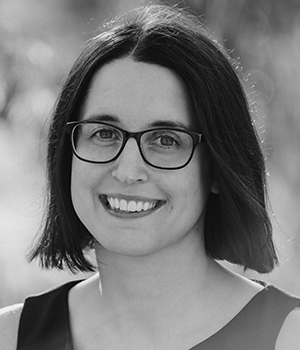 Dr Gemma Sharp MAPS
Dr Gemma Sharp MAPS
Gemma is a Senior Research Fellow at the Monash Alfred Psychiatry Research Centre (MAPrc), Monash University. She leads the Body Image Research Group at MAPrc and holds a prestigious NHMRC Early Career Fellowship. She is known for her pioneering research in body image, particularly genital self-image. She is also involved in the design of novel body image interventions using digital technologies, which is supported by a number of competitive grants (e.g., AMP Tomorrow Maker Grant). Gemma has won an impressive 36 prizes including seven Editor’s Choice Awards from Aesthetic Surgery Journal. She is renowned for her research communication skills and has been named a finalist for the Celestino Eureka Prize for Promoting Understanding of Science (2020, result TBA), Victorian Young Tall Poppy (2018), and an ABC Top 5 Under 40 Scientist (2017). She is also a clinical psychologist and specialises in the treatment of body image disorders.
 Dr Courtney Walton MAPS
Dr Courtney Walton MAPS
Courtney is a psychologist and McKenzie Postdoctoral Research Fellow within the Elite Sports and Mental Health group at the University of Melbourne. Utilising both his applied training in sport and exercise psychology and varied experiences in research, Courtney’s aim is to understand the aspects of unstable and competitive environments that can both positively and negatively interact with our mental health. His research interests are particularly focused on elite and youth athletes, early career academics, and the performing arts. Courtney has been the recipient of various scholarships and awards which have allowed him to obtain valuable experiences at a number of different organisations, including an Endeavour Postdoctoral Research Leadership Award (Vrije Universiteit Amsterdam), a Bicentennial Scholarship (Kings College London), and an Australian Postgraduate Award (The University of Sydney). To date, he has published more than 35 peer reviewed scientific articles, amassing over 1000 citations.
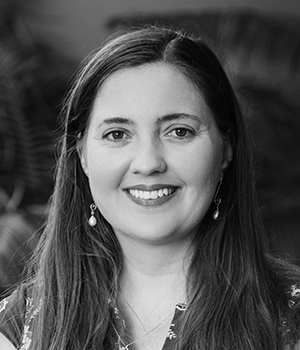 Dr Bonnie Clough MAPS
Dr Bonnie Clough MAPS
Bonnie is an endorsed and practising clinical psychologist, with a research focus in the use of digital technologies to improve access to, and quality of, mental health treatments. Her PhD was conferred in 2016 (Griffith University) and as an early career and teaching focussed academic, she has consistently demonstrated her capacity for high quality and impactful research. She has published 36 peer reviewed scholarly works, attracted $353k in competitive research funding, and has an h-index of 15. Her research is regarded as providing important theoretical contributions to understanding uptake and implementation of digital technologies in mental health. It has been cited as being of high relevance for public policy, and has been incorporated into various training and health policy frameworks (e.g., the UK’s Guidelines on Suicide Among Anaesthetists). Bonnie collaborates with public hospital and health services as well as private health providers. Her research aims to improve access and quality of healthcare for all Australians.
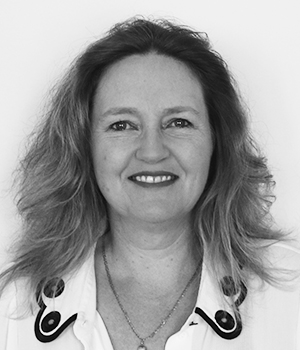 Dr Amelia Lake MAPS
Dr Amelia Lake MAPS
Amelia is a Research Fellow with The Australian Centre for Behavioural Research in Diabetes, a partnership between Diabetes Victoria and Deakin University. Amelia’s research interests focus on applying best practice research methodology and psychological principles to promotion of self-management behaviour for people living with diabetes. Amelia’s research is widely recognised, demonstrated by invited submissions to two Q1 journals, 21 publications, numerous international conference presentations, and a speaking invitation to the Royal Society of Medicine (UK, Diabetic Eye Screening Conference). Amelia has previously been awarded the Psychosocial Aspects of Diabetes Conference Science and APS College of Health Psychologists Early Career Researcher awards. A case study of her program based on her PhD research was included in the Integrated Care for Diabetes and Eye Health: A Global Compendium of Good Practice. Amelia’s international collaborations include a £2.5 million UK-based research programme and leading a joint Australian-Danish-UK symposium at the upcoming 16th International Congress of Behavioural Medicine.
Early Career Teaching Award
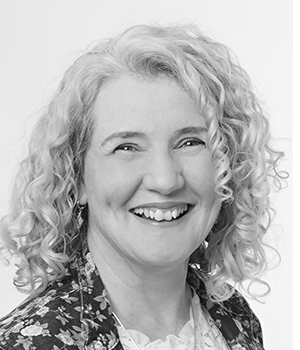 Dr Tanya Machin Assoc MAPS
Dr Tanya Machin Assoc MAPS
Tanya is a Senior Lecturer at the University of Southern Queensland (USQ), where she teaches both social and developmental psychology. She is also the Honours Program Director. Tanya identifies as a psychological scientist and this underpins her approach to learning and teaching. As a lecturer, Tanya aims to create a learning environment that is engaging, encouraging, and scaffolds students learning through rich experiences. In recognition of her commitment to innovation in her teaching, Tanya has been awarded a USQ Technology Demonstrator Grant and has been a part of the USQ HIVE Educator in Residence program. She has also received a number of USQ teaching grants, including a grant to create an open access e-course to help students understand research ethics, a team grant to create an online counselling program, and more recently a team grant to adapt a Psychology Careers Handbook.
 Dr Melissa Oxlad MAPS
Dr Melissa Oxlad MAPS
Melissa is a Lecturer in the School of Psychology at the University of Adelaide. She teaches and coordinates undergraduate and postgraduate courses, including in psychological assessment and health psychology, and is the Master of Psychology (Health) Program Coordinator. Melissa is also the Academic Lead for Internships and Employability. She introduced internships to the undergraduate curriculum, and teaches and publishes research on interprofessional learning. Melissa is a clinical and health psychologist who uses the educational pedagogy of authentic learning, situating learning within a context of future use and real-world application. She uses her clinical experience to develop and incorporate real-world examples and applications into her teaching, which together with interactive and experiential learning, including simulation-based learning, enables students to apply their knowledge and gain hands-on experience to aid their employability. She supervises Masters students and registrars and conducts and supervises research related to reproductive health, chronic illness, and men’s health.
Media Award for Public Engagement with Psychological Science
 Professor Lea Waters MAPS
Professor Lea Waters MAPS
Lea is a researcher at the University of Melbourne and specialises in youth mental health, education and positive psychology. Lea has been at the University of Melbourne for 25 years and has published over 110 scientific publications. Committed to spreading the science of psychology she has written for the Wall Street Journal, TIME.com, the Guardian, and has had work featured in The Washington Post, The Atlantic, the Toronto Globe, Vogue, Elle Magazine and more. Her outreach work to promote psychology across the community includes working with schools, parent associations, not-for-profit organisations, professional conferences and public events such as TEDx. Her video series with The Guardian on coping with COVID-19 has had over 100,000 views. Her acclaimed parenting book, 'The Strength Switch', was published by Penguin Press and has been published in ten languages including Chinese, Japanese, Korean, Taiwanese, Hungarian, Arabic, Spanish, French and Russian.
Outstanding Academic Mentor Award
 Professor Mike Nicholls
Professor Mike Nicholls
Mike completed an apprenticeship in plumbing and then obtained degrees in architecture and psychology from Adelaide University. A scholarship from the Cambridge Commonwealth Trust allowed him to complete a PhD in experimental psychology at Cambridge University. Following the PhD, he worked at the University of Melbourne for 17 years, and in 2010 he moved back to Adelaide to take up a Strategic Professorship at Flinders University. During his career, Mike has supervised 52 honours projects and four of these students have won the APS prize. His very first honours and PhD student is now a Professor with funding from the NH&MRC. He has supervised 15 PhDs to completion and these students have won awards including the Vice-Chancellor’s Award for Doctoral Thesis Excellence and the Dean’s Award. His PhD students have obtained positions around the world including the Universities of Bangor, Birmingham and Stirling and national universities including Monash, LaTrobe, Melbourne and UNISA.
Award for Excellent PhD Thesis in Psychology
 Ms Sasha Quayum MAPS, Flinders University
Ms Sasha Quayum MAPS, Flinders University
Thesis title - An investigation into the mechanisms underlying the memory amplification effect
Sasha investigated why trauma survivors often recall having experienced more trauma at follow-up compared to initial assessment. Across several studies, she found three potential underlying mechanisms for this “memory amplification”. Specifically, people may: 1) reappraise their trauma as worse over time to make sense of, or justify, current symptomatology; 2) incorporate trauma-related post-event information into their memory; and/or 3) construct mental representations of others' responses when the trauma is shared and incorporate those responses into their own. Based on her thesis, Sasha has published four first-author papers with another three under review, presented at multiple conferences, received the Psychonomic Society Accommodation Award to present her work, and was awarded the Vice-Chancellor’s Award for Doctoral Thesis Excellence. Sasha now works as a Cognitive Scientist at Defence Science and Technology.
 Dr Eleni Demetriou MAPS, University of Sydney
Dr Eleni Demetriou MAPS, University of Sydney
Thesis title - An empirical evaluation of executive function in autism spectrum disorder
Eleni examined the contribution of executive function (EF) in autism spectrum disorder (ASD) compared to other young adults experiencing social difficulty (social anxiety and early psychosis). Empirical studies included investigation of moderators of EF (sex differences and affective states); the role of EF in predicting disability, and implementation of a machine learning paradigm to explore multiple cognitive domains and affective states for differential diagnosis. Research findings include identification of discriminating profiles between conditions with social difficulty, the transdiagnostic impact of affective states on EF, and a model for a unified research protocol for the study of EF in ASD. The thesis addresses a gap in diagnostic services for youth/adults with ASD, particularly for individuals with no prior diagnosis of autism who face challenges of social inclusion, obtaining appropriate diagnostic assessments, and experiencing multiple barriers in overcoming disability. Eleni’s research resulted in four first author publications with two under review, and she has presented at Australian and overseas conferences. Eleni is currently working as a postdoctoral research fellow at the Brain and Mind Centre, University of Sydney continuing her research in neurocognitive markers of autism spectrum disorder and disability.
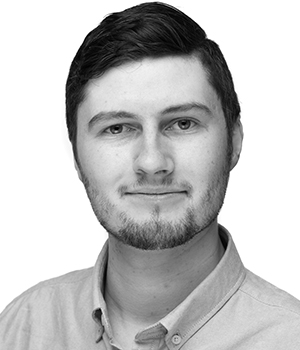 Dr Michael Wilson MAPS, University of Western Australia
Dr Michael Wilson MAPS, University of Western Australia
Thesis title - Executing deferred tasks in dynamic multitasking environments
Michael examined the cognitive mechanisms underlying how individuals use prospective memory when working in complex dynamic work environments, such as air traffic control. His research applied cognitive models to an ecologically motivated air traffic control simulation. He found that situational factors, such as task interruptions, can negatively impact prospective memory and task performance (published in Journal of Experimental Psychology: Applied); and that time influences these effects (published in Human Factors: The Journal of the Human Factors and Ergonomics Society). Michael has received numerous commendations for his work including an Early Career Research Award (2019) from the American Psychological Association Division 3, and a Higher Degree by Research Achievement Award (2019) from The University of Western Australia. Michael is now a Research Fellow at Curtin University's Future of Work Institute, where he develops predictive models of human performance and wellbeing.
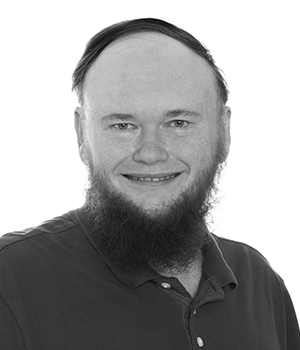 Dr David Reilly Assoc MAPS, Griffith University
Dr David Reilly Assoc MAPS, Griffith University
Thesis title - Sex differences in cognitive abilities and educational outcomes: Examining the contribution of sex-role identification
David’s thesis tested whether psychological gender (personality traits of masculinity and femininity) might be a better predictor of ability than biological sex. It found support for Nash's sex-role mediation hypothesis in a series of experimental studies, as well as contributing basic research in the form of meta-analyses to examine whether sex differences in reading, writing, and quantitative reasoning (mathematics and science) were still observed in large nationally representative datasets of educational achievement. Despite claims by some researchers that they were declining, sex differences in language ability remain substantial and pervasive with boys scoring substantially lower. Sex differences in quantitative reasoning are comparatively quite small but aren’t disappearing, especially for sex ratios in high achievers where boys outnumber girls. Further research into effective educational interventions is required in the interests of gender equality.
Excellent Thesis in Ethics Award
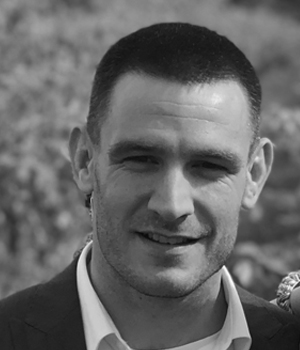 Mr Edward Dickeson MAPS, University of Adelaide
Mr Edward Dickeson MAPS, University of Adelaide
Thesis title - Boundary violations: Character & contexts
Under the supervision of Associate Professor Rachel Roberts and Dr Matthew Smout, Edward Dickeson sought to quantify which factors make mental health professionals more prone to violating client boundaries. Australian mental health professionals (n = 275) completed three separate measures of boundary violation propensity alongside a battery of hypothesised predictors reflecting existing qualitative research. Boundary violation propensity was associated with nurturant interpersonal styles in females and dominant interpersonal styles in males. Above all implicated predictors, practitioner narcissism showed the strongest relationship with all three measures. In addition to informing theory about those at risk of perpetrating boundary violations, the identified predictors can inform those involved in selection for training programmes and staff appointments and serve as markers for providing closer supervision. Results were published in Clinical Psychology & Psychotherapy and were presented at the 2019 Australian Association for Cognitive and Behaviour Therapy national conference.
APS Altmetrics Award (sponsored by Wiley)[1]
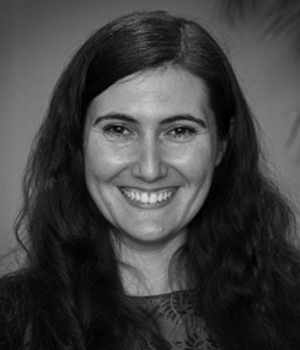 Laura Ferris
Laura Ferris
University of Queensland
Laura is a researcher in social and clinical psychology, and a registered psychologist. She completed her PhD in social Psychology and a Masters in Clinical Psychology at the University of Queensland in 2018. Laura has research expertise in social identity, mass gatherings, emotion, and health. She is especially interested in delivering applied research with theoretical impact. In particular, Laura investigates psychological functioning in the context of challenging environments; the social psychology of pain and suffering; service responses to suicide crisis; clinical insight in high secure forensic populations; and group dynamics in the context of emotionally-intense mass gatherings such as protests, festivals, and cold water swims. She also has a background in law and justice policy, and postgraduate training in governance and public policy. Her research is published in respected journals such as Psychological Science, Journal of Personality and Social Psychology, Review of General Psychology, and The Australian Journal of Psychology.
 Dr Helena Radke
Dr Helena Radke
University of Edinburgh
Helena completed her Bachelor of Psychological Science (Hons I; University Medal) in 2011 and her PhD in 2016 at the University of Queensland. She then worked as a post-doctoral researcher at the University of Osnabruck in Germany from 2017 to mid-2019 before starting as a Lecturer in Social Psychology at the University of Edinburgh.
Helena’s research interests include understanding prejudice and how social change occurs through collective action. Specifically, she is interested in understanding and overcoming the barriers women face when engaging in collective action to overcome sexism, and the benefits and backlashes associated with involving allies in political movements. Her work has been published in American Psychologist and Personality and Social Psychology Review.
[1] The APS Altmetrics Award is awarded annually for the paper published in either the Australian Journal of Psychology, Australian Psychologist or Clinical Psychologist with the highest Altmetric Attention Score.